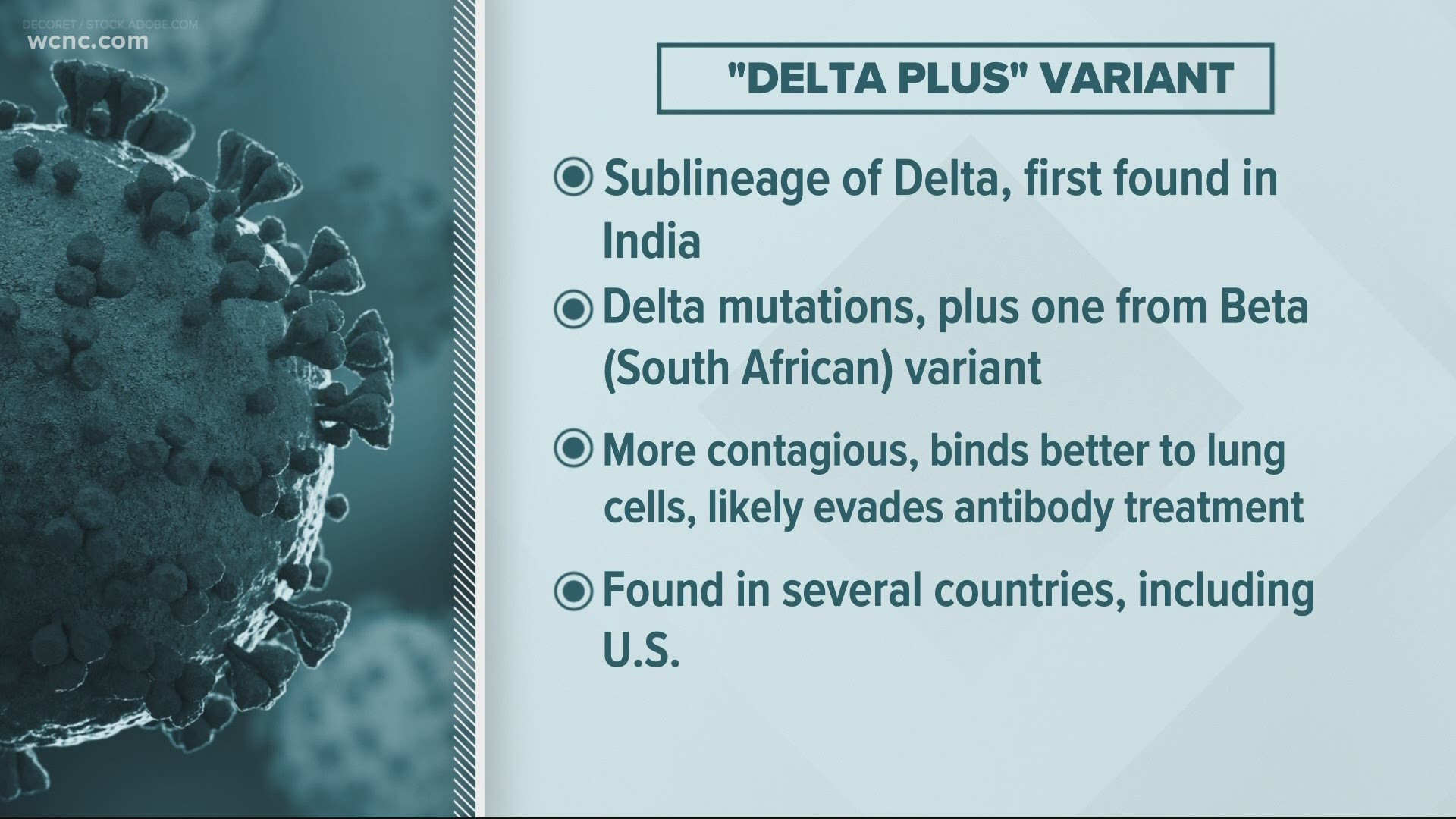CHARLOTTE, N.C. — Yet another COVID-19 variant is garnering the attention of researchers. While health officials have been raising concerns about the more transmissible B.1.617.2 variant, also called delta, scientists are working to learn more about a variant dubbed "delta plus."
India's Ministry of Health and Family Welfare announced Delta Plus was a variant of concern late last month, noting this form of the virus was more contagious, could bind more readily to lung cells, and potentially could evade some antibody response.
Public Health England published some preliminary information on the variant as well, stating that it had been detected in at least 11 countries. The United States was one of those countries, with more than 80 cases detected via genomic sequencing. According to the agency's report, delta plus carries all the mutations of delta, plus the spike protein mutation K417N, which is also seen in the Beta variant, first detected in South Africa.
Officials in India say the added mutation does not necessarily make delta plus more dangerous than delta.
Dr. Karla Robinson, a family physician with Urban Housecall Health Group in Charlotte, said the more COVID-19 infections happen, the more opportunities the virus has to mutate, creating potentially concerning variants like delta plus.
"This is something that's not foreign. It's not surprising. Viruses do mutate. We really do have to do our best to decrease risks of infection, including vaccination, including all the other measures that have been put in place," Robinson said.
Neither the Centers for Disease Control and Prevention nor the World Health Organization have declared delta plus to be a "variant of concern." However, the CDC projects delta to become the predominant strain of the coronavirus in the U.S. in the coming weeks.
So far, health experts say current vaccines offer protection against the known COVID-19 variants.
Contact Vanessa Ruffes at vruffes@wcnc.com and follow her on Facebook, Twitter and Instagram.

